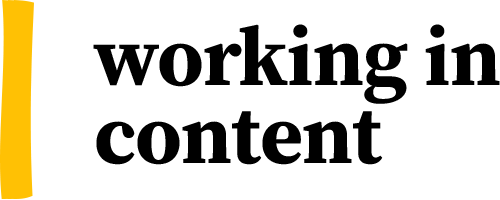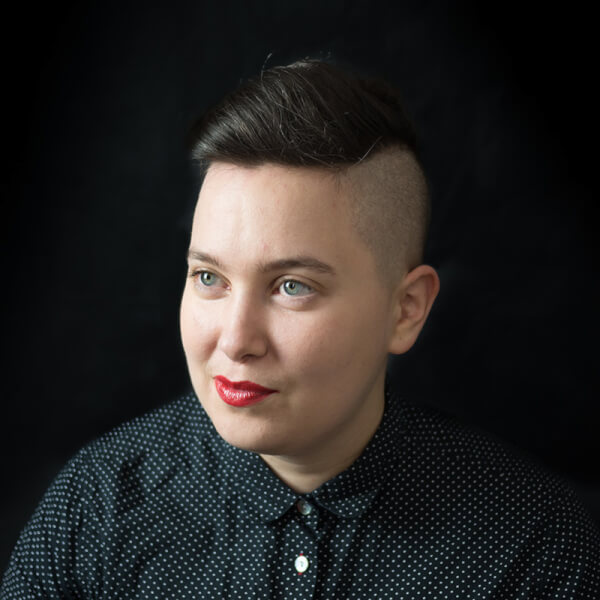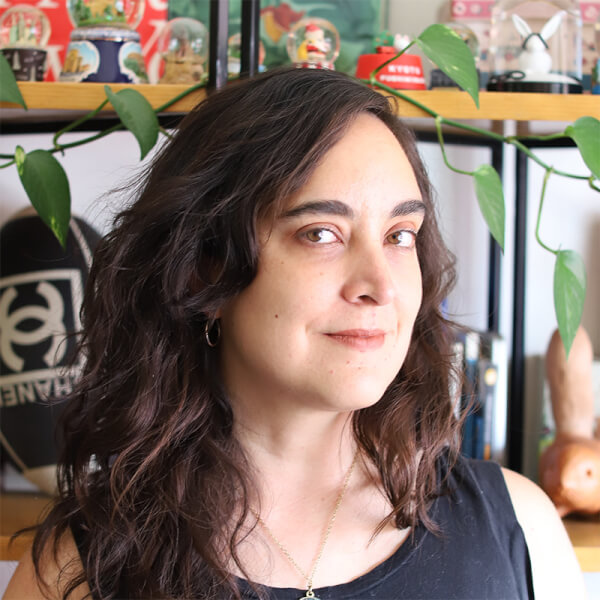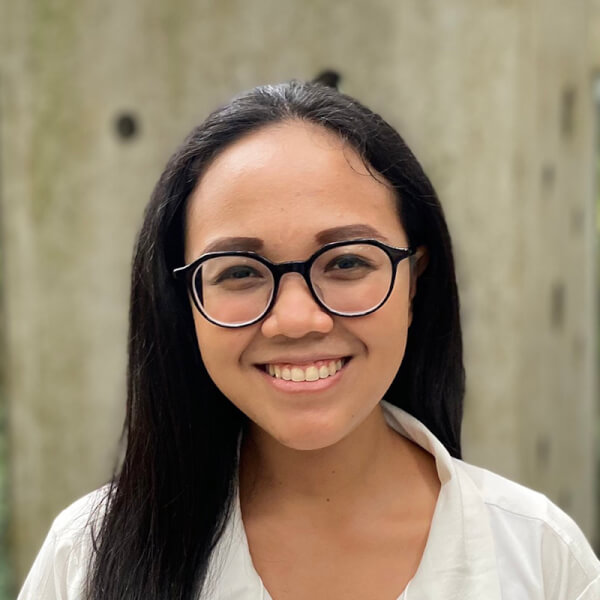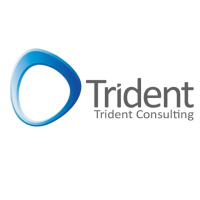In this dynamic panel discussion, five content designers from diverse linguistic backgrounds share their experiences, challenges, and unique insights on navigating the field of content design when English isn't their first language. The panelists, Amandine Agić, Camila Pechous, Lorena Villa Parkman, Susanna Agababyan, and Alverta Shani, provide a wealth of knowledge and practical advice for aspiring content designers who may face similar challenges.
Meet our panelists
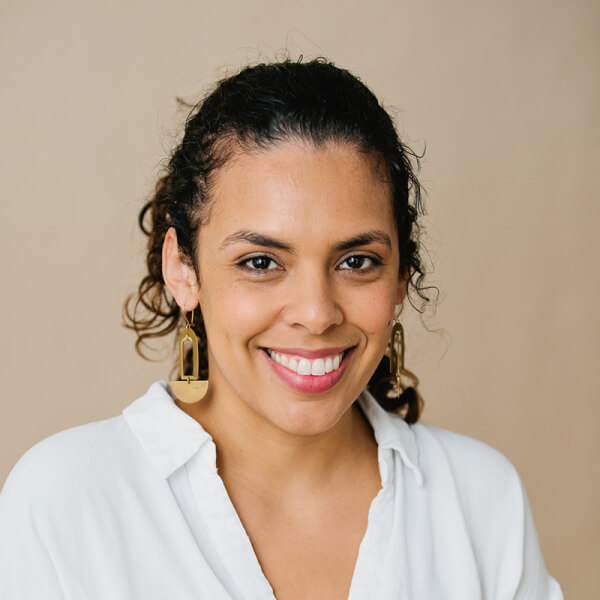
About this panel
Throughout the discussion, the panelists explore the importance of empathy and cultural context in their work, emphasizing how their multilingual backgrounds contribute to a deeper understanding of user needs and experiences. They also address the problematic nature of the term "native speaker" in job descriptions and its potential to exclude qualified candidates based on linguistic background.
The panel delves into the unique perspectives and skills that non-native English speakers bring to the field of content design, such as the ability to question assumptions, advocate for plain language, and consider the needs of a diverse global audience. The panelists share their personal journeys and the strategies they've employed to overcome challenges and succeed in their roles.
Additionally, the panelists offer practical advice for aspiring content designers who may face similar challenges, including how to showcase their skills, build confidence, and find supportive work environments that value diversity and inclusion.
This panel is a must-watch for anyone interested in the field of content design, particularly those from diverse linguistic backgrounds. The insights and experiences shared by these five talented professionals provide valuable guidance and inspiration for navigating the challenges and opportunities of working in content design when English isn't your first language.
Other videos in this series
Lizzie Cass-Maran encourages content designers to identify their niche by finding the joyful intersection of their skills, passions, and experiences. She emphasizes the importance of continuous learning, building a supportive community, and embracing one's unique perspective while avoiding the pitfalls of imposter syndrome and the problematic "flag planting" metaphor.
Ebony Johnson shares her journey and advice on building confidence as a new content designer, stressing the importance of being selective with companies, identifying areas for improvement, and leaning on community support.
Molly Whitehead-Jones shares her experience and practical advice on being an effective part-time content leader, emphasizing the importance of setting clear boundaries, empowering your team, and creating processes that enable smooth collaboration.
Lessons learned from the panel
Empathy and cultural context are essential skills for content designers
The panelists emphasize the importance of empathy and cultural context in their work, highlighting how their multilingual backgrounds contribute to a deeper understanding of user needs and experiences. As content designers, they are able to consider the diverse perspectives and contexts of a global audience, ensuring that the content they create is accessible, inclusive, and effective.
The term "native speaker" in job descriptions can be exclusionary and problematic
The panel addresses the problematic nature of the term "native speaker" in job descriptions, noting its potential to exclude qualified candidates based on linguistic background. They argue that the focus should be on a candidate's skills, experience, and ability to communicate effectively, rather than on their status as a native or non-native English speaker.
Non-native English speakers bring unique perspectives and skills to content design
The panelists discuss the unique perspectives and skills that non-native English speakers bring to the field of content design, such as the ability to question assumptions, advocate for plain language, and consider the needs of a diverse global audience. They emphasize that these skills are valuable assets that can enhance the quality and effectiveness of content design.
Building confidence and finding supportive work environments are key to success
The panel offers practical advice for aspiring content designers who may face challenges related to their linguistic background, including the importance of building confidence in their skills and finding supportive work environments that value diversity and inclusion. They encourage aspiring content designers to showcase their unique strengths and experiences, and to seek out opportunities that align with their values and goals.
Continuous learning and professional development are essential for growth
The panelists stress the importance of continuous learning and professional development in the field of content design, particularly for those from diverse linguistic backgrounds. They recommend staying up-to-date with industry trends, seeking out mentorship and guidance, and actively pursuing opportunities to expand their skills and knowledge. By investing in their own growth and development, content designers can position themselves for success and make valuable contributions to the field.
About Perspectives Conf
This talk is part of Track #1 - Breaking into content design of the 2022 edition of our conference.
Perspectives Conf is the world’s first event specifically focused on the careers side of content. It’s been carefully curated to help people at all levels navigate the many facets of working in content – from being the first content person to hiring and growing a team.

Transcript of the talk
00:01 Everyone good evening. Good morning. Um, to each and every one of you. My name's, uh, Amadine Agic. I transitioned to UX writing, uh, after a short career in translation and technical writing.
00:16 And I'm here today to speak about, um, what it feels like to be a UX writer when your first language isn't English.
00:26 And first of all, I'm going to ask each of our panelists to introduce themselves. So could you please give your names, pronouns and, uh, job title.
00:40 Okay. Hello guys. Hello everyone. My name is Alverta Shani, or you can call me Alverta, my pronouns, she and her.
00:49 And now I am working as a UX writer at Gojek a tech company from Indonesia and I'm writing for their transport and logistics products.
00:58 So nice to meet y'all.
01:02 I'll go next. Um, uh, hi everyone. My name is Susanna. Um, I'm UX writer, um, at booking.com. Um, I've been a UX writer for two years now.
01:13 Um, but unofficially way longer, um, because yeah, I feel like this profession existed long before it got a proper title.
01:21 Yup.
01:23 I can go next. My name is Lorena Villa Parkman. My pronouns are she her hers and I been a content designer for officially four years unofficially almost seven.
01:35 And I work@realtor.com right now as a lead content designer.
01:41 Cool, awesome. Oh, it's me. I'm Camila Pechous, uh, pronouns she and hers. I am a UX writer at Square I'm based in Chicago, but I work remotely and I've been doing UX content design, uh, for about five years now.
02:03 Cool. Thanks everyone. Uh, so I know I became a UX writer slash content designer before I even knew it. Um, I used to do the job and I didn't know how it was called.
02:15 Uh, so first things first, um, how did you become a content designer? Uh, maybe Alverta. You want to start first?
02:23 Sure. Um, I think I became a content designer because I realized that, um, I mean, I call it UX writer, uh, in here.
02:32 Like I become a UX writer because I realized it intersects with my previous background before, because I was a journalist and also a social media strategist.
02:41 So in journalism, I learned a lot about writing and also structure my thoughts into writing while in social media strategy.
02:50 I learned how to read and analyze data as well as like creating a content strategy. And that's when I know that this skill can leverage as a UX.
02:59 Right. So, and also like in Indonesia specifically, um, there are a lot of like high demands in UX writer, but, uh, we have like a really low supply.
03:10 So I feel like this is like a good thing for me to switch my career to UX writer. So I applied for an internal transfer within my current company, which is Gojek and I got the job.
03:23 So like that's how I became a UX writer.
03:31 I can go next. Um, so my background is quite diverse. Um, I've always loved languages. Um, and, uh, I was lucky now because my parents supported me in that.
03:42 Um, I started translating TV series and movies from English and French fairly early. Um, when I was around 14, um, I studied linguistics, uh, in university and, um, then I worked for a long time as an interpreter and translator.
04:01 Um, and, um, then I transitioned into journalism and was creating different types of content, um, for around seven years. Um, I feel like, uh, UX design and UX writing, uh, in particular, let me leverage my different skills.
04:23 Um, I was looking for something that would be more than just writing content, um, and where I'd be able to put my different skills, um, in use and follow different passions, um, passion for research, interviewing, writing languages and collaboration as well.
04:43 Um, and, um, this way know that I'll never get bored, um, because, um, I'm never stuck doing just one type of thing.
04:52 Um, and it keeps me on my toes because I need to constantly evolve. Um, but I absolutely love it.
05:02 I can go next. Um, like all of you, I also knew when I was a young child that I wanted to be a content designer.
05:09 No, that's not true because I don't think this even existed then, but I did know that I loved creating things that took people on a journey that helped them understand, um, something new and complex about their world.
05:21 So I come from a journalism background, uh, in which my first words and stories, um, uh, I did were paper and print, journalism, magazines, and newspapers.
05:31 And as that industry started getting a little bit more, um, hard to work at, I started, um, transitioning to digital and then I learned more about content strategy and I kind of like started really liking to do that.
05:44 And then I, um, my first, uh, kind of more official content strategy, content strategy slash content design job I had was at, um, uh, I'm more like a tech company, tech entertainment at Hulu.
05:57 And I started doing more like technical writing for their support, uh, channels, like the help center, a chatbot and all that, which all of that gave me the opportunity to also work on information architecture, conversational design.
06:10 So that was like how I, um, then officially got another role with the title of content designer at, uh, um, San Francisco, uh, digital services team, like the government.
06:21 And, um, so yeah, it was like a smooth, like a slow transition, but everything had to do with, um, I would say, uh, the jobs, my jobs had a thing in common, which was mostly as a translator of complex processes, uh, steps or ideas into useful, simple and accessible content.
06:43 Nice. Yeah. So I have a similar path, like most of you, um, I'm from Brazil. I started my career in publishing.
06:52 So when I immigrated to the US, uh, it was an opportunity to start over big something new if I had to.
07:00 Um, and I quickly realized that it was going to be really hard to compete with, uh, Americans with English majors into the publishing field.
07:10 So I just decided to start over something, um, from scratch and I found myself in localization. So I did a lot of translation and localization, which took me to my first role in tech, um, at Amazon about five years ago.
07:26 And I immediately fell in love with UX. I didn't know, uh, something like that exist, um, how you can improve, uh, digital experiences, uh, without any coding experience required.
07:41 Um, and I was able to combine that writing background with this passion for, um, digital and visual and design. Um, so I just found my side door and got into UX writing.
07:59 So yeah, I see some of us have worked as translator or localizators. Um, how do you think that helped you, um, actually understand the job of a content designer or maybe how a product works?
08:16 Um, Susanna, do you want to go first?
08:20 Yeah. Um, if we're talking about, um, my background and translations and, um, uh, working as interpreter, um, so, um, I wanna, I wanna, um, uh, bring up this maybe weird metaphor, um, with you between like, and resemblance, um, emphasize the resemblance between UX design and theater.
08:44 Um, I've worked as a consecutive and simultaneous interpreter for several years, um, in theaters. And, um, when you do that, you don't have any time to tweak and twist your translations and, um, you need to come up with something good enough very quickly.
09:04 And, uh, what I noticed about myself and also about, um, um, from observing my colleagues, um, was that the quality of translation would depend highly on the way the person, um, would choose to phrase, um, their thoughts in the original language and long phrases, um, abundant, uh, participle constructions
09:25 , local idioms, um, references that would need additional, um, explanation.
09:32 Um, this would all cause trouble for me. Uh, the best, uh, experience that I had, uh, was with an Italian theater director, um, who would always make sure to, um, formulate his thoughts in Italian in a way, um, that would help me translate it into Russian, um, in the best way possible.
09:55 And, um, as a consequence, uh, it made actors and technicians lives, um, way easier. Um, and, uh, yeah, since the Italian version was so transparent and unambiguous, um, my version of Russian would also be very, very clear and unambiguous.
10:14 Um, and people would have zero, um, questions afterwards. And, um, I feel that there's a resemblance, um, between this and, uh, what we're doing, uh, in terms of, um, UX writing because, um, it works basically the same, right?
10:31 Um, the clearer you communicate everything. The less users tend to contact customer support and bombard them with additional questions.
10:41 Um, and, um, another thing is that like my linguistic background, um, it, it kind of, um, um, allows me to, um, it informs my technical approach to, um, creating copy, uh, because I always keep in mind that languages, um, they have different, uh, structure.
11:04 There are analytic languages, like low romance languages. Um, there are synthetic languages that use inflections, like, uh, Slavic languages, including Russian.
11:15 Um, and, um, if we can, we translate everything in into 40, more than 40 languages. So what I'm asking myself when I'm writing copy?
11:26 Is that, would it, would it, um, will this phrase translate well, does it make sense? Will this, um, have an equivalent in all the languages, um, and is this structure going to be problematic, um, uh, during the localization process?
11:43 Um, so yeah, I think these are the main things, um, for me to kind of think of and how, how my background helps me, um, in my current role.
11:53 Yep.
11:56 Yeah, for me, uh, from publishing, um, it helped with operations and processes, um, gathering requirements and scope of the project, uh, the actual writing copy, editing, editing, uh, fact-checking peer review and the final publish, uh, that process is kind of similar in content design.
12:19 So I just, uh, brought that from, from my publishing days, um, from localization and translation, um, the obvious just word choice and verb, tenses not everything, uh, functions in the same way in different languages, if you are writing something, uh, translating from English, especially US English.
12:42 Um, but overall I think being a translator coming from a different, uh, different country speaking, another language, um, it really helped me think of usability and cultural context, um, from usability perspective.
12:59 Um, do my users have the same access to internet? Do they use only mobile phones or they're having, um, they're going to experience this on a web browser.
13:12 Uh, uh, what about the speed of the internet connection? Uh, the cultural context. Is there anything happening in that, um, region that will affect them or, uh, will prevent them from using our products?
13:28 So things like that, I know we can't, we can't think of any context, all the context possible, but it helps to bring that conversation during, um, you know, a meeting with your PMs or your researchers just being that voice in the room is very important.
13:44 And, uh, those things that I have helped me in the past. So, um, yeah,
13:52 Yeah. In, in my case I I've been a translator, Spanish English and English to Spanish. And I also taught language studies like, uh, at a university level thinking like, like think semiotics, this course analysis and all that.
14:05 So I think both those experiences come with, um, techniques that can help in work as, as a content designer. Like, I always questioned the use of certain words.
14:14 Like I it's like all of you have said, like, um, and whether there's a clearer one that describes what's happening to the user in a better way.
14:22 Like, um, sometimes, uh, you work with, I mean, in my case, I'm in the US working mostly with people who English is their first language.
14:31 And sometimes they're like certain assumptions around how people understand terms. And it's like, well, you, you, you are like in a great position to kind of like question that is like, is this really the word.
14:43 That's going to mean the same thing for people who maybe English is not their first language specifically thinking just as, Susanna mentioned as well, like if you're working with localisation team.
14:53 Um, and, um, so yeah, like I questioned things like, for example, now that I work for, um, a real estate, uh, product is like, what is really the difference between estimates or estimations?
15:03 Is there, like, I, I get to that granular part of like, what does this really mean? And we choose the right, uh, uh, word for the ease or is the verb modifier in the right place, which kind of like goes to that very formulaic way of seeing language.
15:17 But that also helps you clarify, like, make sure that your message is clear. And then, um, as you all mentioned as well, like the understanding of like, there's going to be people who maybe English is not their first language, so make sure that everything you write using plain language it's, um, you
15:36 have all these other, um, things in mind like, uh, Camila was mentioning as well.
15:41 Like, uh, when I used to work for the government, there's a lot of, um, uh, stress in making sure that you are talking to your, your content is accessible to people who have maybe digital, not as a, they have different digital skills, digital accessibility.
15:57 Um, you also are thinking about like, Hey, do we really need an image because there's, these might affect people who have, um, data limits, right?
16:04 So all of that, like kind of like empathetic and just accessibility and inclusion thought comes. I think also from, um, from being, from working on, on translation and just like, um, all of these other, um, kind of ways of thinking about language more than just one language,
16:25 The next question is going to tackle what happens later in your career. Um, so let's talk about job descriptions and applying to a job.
16:38 Um, specifically, how are the job descriptions written in your market? Is English always a prerequisite and how does it differ from an international market?
16:51 Um, maybe Alverta, you want to go first?
16:54 Yeah, sure. Um, I think, uh, I think I'm going to talk about more, uh, in South East Asia context and maybe like specifically in Indonesia, uh, because in, in Southeast Asia, I think English is mostly a prerequisite, uh, for, to ask, like for, to apply for a UX writing job in a company.
17:14 Because I think even in here, like you can set your app app language into English and local language which is Indonesian.
17:22 So I think it will be great if you have an English skill, uh, as a UX writer. Um, and also a lot of, um, a lot of, uh, startup or tech company in Indonesia as well are like expanding to other Southeast Asia country.
17:38 So yeah, it's really good to have like English, uh, skill. Uh, but I think from my research, uh, if we want to answer, how are the job description written in the market here?
17:49 Is that, uh, from my research, uh, a lot of companies or most companies in, uh, Southeast Asia mostly, uh, write, that a candidate has to have an excellent or outstanding English skill.
18:04 So I think they don't really looking for a native English speaker because I think it's going to be hard to find one cause like most of South East Asia countries don't really speak English as their first language.
18:17 So, um, but I want to point out like the big issue, uh, in here, like, uh, in Southeast Asia and maybe specifically in Indonesia is that the big issue is actually, uh, the shortage of a U X writing balance basically.
18:31 So, um, UX writing is really in high demand because like a lot of, uh, tech company and startup are emerging in South East Asia and we want them to write the copy in the app, but, and most company, uh, want to have balance that has a lot of experience, like two or three experience, but we don't really
18:50 have a supply for that. So it's kind of hard to get a talent. Right. Uh, so to start, maybe to sum up my point is that even though you really have a good English skill or even like a native level, it doesn't really guarantee you to get a UX writing job.
19:06 Uh, if you don't really know or understand about UX writing skill, like the basic one,
19:19 I don't know. Susanna, do you want to go next?
19:21 Oh, okay. Um, sure. Um, yeah, I think it's kind of the same for Russia. If we're, we're talking about Russia being the, like, uh, my market, uh, initially.
19:34 Um, so it depends on the role. Um, and, uh, some, some roles would require knowledge of English, um, some not, uh, because, um, if, if a product is, is a local one, um, uh, if it's not an international company, so most of the products actually in Russia, they are not localized.
19:56 Um, so it would not require the person to know, uh, English, but, um, if you, uh, if it comes to that in Russia, it's always more about, um, having a strong command of English because yes, as, uh, Alverta, uh, mentioned, um, no one in Russia, um, like for no one in Russia, um, English is a first language
20:21 . So, um, it's kind of a given that it's something that needs to be learned, um, in, in school or at university.
20:30 Um, so it's a second or a third language and, um, yeah. Um, but if we're talking about Europe, um, that's where I'm now located.
20:40 That's a whole different story and a whole different world because, um, I think here it's, it's very important to, um, discuss, uh, how it's phrased specifically, and I know that others will chime in and, um, also also, um, share their, their thoughts on that, uh, because you can see kind of native level
21:03 English appearing more and more nowadays. Um, but native English requirement in, in job descriptions is something that is very much present.
21:12 Um, and sometimes, um, hiring managers fail to, um, understand, um, that just like not every native speaker is a good UX copywriter.
21:25 Um, and just a copywriter in general, not every UX copywriter, um, has to be a native English speaker. So this is something that we might need still to change narrative about.
21:39 Um, and, um, yeah, um, there's, there's a lot of, I think still kind of a little bit gatekeeping going on and, uh, discrimination in terms of yeah.
21:49 Um, and also, um, it's the question who needs to what we mean, um, by, by these requirements, even one would see them like level native level English.
22:01 Um, yeah. So there's a lot to discuss about that as well.
22:07 Yeah. I think the term native speaker is extremely problematic. Uh, that's something I see a lot, uh, here in the US.
22:15 Uh, I've been through, uh, uh, a job. Um, I changed jobs recently, so I review a lot of jobs and, um, there, there is a lot of research around, um, psycholinguistics about this harmful terminology, native speaker.
22:34 It essentially excludes candidates based on this binary, conceptual of nativeness. What w what does native mean? Right. So clearly some hiring managers, uh, don't understand much about language acquisition, um, and they believe that if you speak English as a second language, you don't have the right
22:54 command of, of grammar and mechanics with which is not true. Uh, it's just reproducing assumptions about professional experience and cultural identity, and it just reinforced bias against immigrants, right.
23:09 Especially in tech, we've seen this a lot. So, um, I, if I could remove completely the native speaker requirement, I would, um, I don't have a right answer for that native level.
23:21 English could be more acceptable, but I am curious to hear more and see a change of, uh, coming from hiring managers and recruiters, um, overall,
23:35 Yeah, Camila, I think I have a similar experience. I also work in the US and I've seen a lot, um, this term lately, as well as, um, something around the lines of perfect or impeccable grammar or command of English language.
23:49 And it, that, to me, it's like maybe the other way, they're gatekeeping these as like perfect impeccable. And I really also don't, uh, I'm honestly not sure what, in these job descriptions, they really mean when they want a native speaker.
24:04 Um, if you are from a country who has two official languages, and one of them is English, would that make them a native English speaker?
24:11 Like, what about if they have an accent? Like, which is sometimes like, uh, you talk to the recruiter or you took their hiring manager and would they consider you native?
24:22 Like what they're calling native? I don't know.
24:23 Like, I also don't have an answer. It's just like, I've seen these. And I'm like, I wonder if there's like an, I mean, not a wonder there is an intentionality in these terms, right.
24:34 That they're putting out there in their job descriptions and what knowledge does it even guarantee, right? Like, it's like, wait, um, and this, and then also like a person who grew up speaking and writing English in an English speaking country may, may have a comprehensive understanding of their language
24:50 and excellent command, spelling, whatever. But we go back, I think, to also the same issue about how content design or UX writing is so much more than just that, like, if the job description, the recruiter or hiring manager are more focused on wordsmithing abilities and grammar, and then they are missing
25:08 out on the point. Also what the role of a content designer is.
25:11 Are they also asking for knowledge on user research journey mapping, like all of these other things that, uh, they should be able to be asking, like the misunderstanding of the role leads to many people?
25:23 Mainly, excluded, like people who maybe don't have a strict writing background, like, or like, I don't know if like a service designer applies.
25:31 They, they, they would be excellent, even though they maybe don't have a writing background or like a librarian who are be an excellent taxonomist, you know, it's like by using that, they're excluding these people as well.
25:44 And content designers who English is not their first language.
25:53 So yeah, I know some of us have had to convince during job interviews or in cover letters that would be a good fit for, um, a UX writer or a content designer position.
26:07 And that leads us to a big question. Um, like, do you have tips for, um, people who are breaking into content design in terms of, um, trying not to feel overwhelmed by the imposter syndrome or, um, basically, how did you get started?
26:32 I don't know who wants to go first?
26:37 Okay. I can go first, I think, um, because I consider myself as new because I only have two years experience in UX writing.
26:46 Uh, so when I first started, I literally didn't know like what to do, because my background was like a journalism and social media strategy.
26:53 And I didn't really have a formal training in UX writing because I did an internal transfer. Um, and, uh, you know, when I first started, I had to do like a lot of unlearning, uh, and I, I kind of have to accept that.
27:06 Okay. I don't know anything about UX writing and I am here to learn and that's okay if I don't know something that I don't know, because I know that if I, I am willing to learn, then I'm going to know about it eventually.
27:20 So my tips is that I think, uh, when you're a first time UX writer, and I know that imposter syndrome is very inevitable.
27:28 So I think what, uh, what we need to do is that we need to build trust. Uh, first of all, first of all, we need to build trust in ourself and also build trust in our teammates and stakeholder both are really equally important.
27:42 Um, and I feel like, uh, don't put so much pressure on yourself because that's okay. I mean, like, if, if you're new, I think that's where you can make a lot of mistakes and people would be like more forgiving, but when you're like a senior, I think, um, you know, it's, it's a different, uh, circumstances
28:01 , but yeah, I think, uh, just also be kind to yourself and accept that, okay, I'm still here and learning. And the second one is that build trust with your teammates and stakeholders.
28:12 What I did was like, I actively ask question, uh, and I had a lot of one-on-ones with my PM and with my UX designers and everyone, so I can get more context about the job.
28:24 And also I, uh, I found some easy ways to contribute more and, uh, I did volunteer to work that no one's wants to pick up for.
28:34 So I did that to build trust. And I did that to show that, Hey, I am a reliable person. You can rely on me and I'm very collaborative.
28:41 So I did that. And, uh, once they realized that I am real reliable, uh, I think they would value our perspective and opinions more.
28:50 And I think that, it's, one of the way that we can get the seat on the table,
28:58 Um, I can go next. I don't, I don't know if I had to convince necessarily someone. I mean, I really, when I've been rejected of roles, I, but I would say that for example, in my current job@realtor.com, I I'm, I'm the first content designer.
29:15 And they were looking for someone who could do foundational work, like, uh, to start the content design discipline. So, um, a lot of the work they were expecting this person to do involve like creating content, frameworks, product narratives, style guide, strategic work, that again, um, none of that
29:33 required native proficiency because they actually understood that content design is like 20% writing or whatever percentage, and then my sister work and working on deliver the deliverables that are design, they also never required a written test.
29:52 They they required a portfolio. And, um, uh, well the written test, we know that it can be inequitable, so they cared more about my experience in creating strategies, my knowledge of methods.
30:03 They wanted to see how I got to certain, uh, they wanted to see my deliverables, but they wanted to see how I got there, like my thought process.
30:10 So, um, they also understood that as a bilingual content designer. I could be good at evangelizing plain language accessibility and inclusion.
30:18 Not that we should be the only ones doing so, but we are very well positioned to do so, because we don't have, we don't take certain words, language choice for granted, like all of these things that we mentioned that we are like, um, very, um, kind of sensible too.
30:33 So I guess my caveat here is like, there will be places that don't know maybe what content design is all about, and the breadth that it can encompass.
30:42 And those are the ones, those places maybe will be asking you to take a lot of grammar tests os asking you for X proficiency, whatever.
30:50 Um, and maybe you don't want to work there anyway. So, um, I, I was like, that's my, my, my caveat, there will be a place that kind of understands what you're bringing to the table and that's where you want to work at.
31:05 So,
31:08 Yeah, I agree with Lorena. Um, some jobs might be focused on mechanics of writing. Um, you may feel that it's not a good fit for you and that's okay.
31:19 Um, I am seeing a lot of influx of seeing influx of academics in English majors, pivoting to UX writing, and they come, they bring a lot of knowledge of the language that some of those hiring managers are looking for.
31:35 So you bring other a set of other skills, right? You bring the whole aspect of design thinking and user experience.
31:42 So my piece of advice would be relying on that. Uh, the other side of, uh, content design in UX writing, which is not only, um, grammar and mechanics, um, and I know it might feel intimidating, but sometimes a bigger company with a large scope and a global reach will provide, uh, an environment for you
32:04 to flourish. So just seek for those companies, right? Diverse voices with diverse backgrounds, that's where you want to be. Um, I had a great experience at Amazon because I saw senior leaders, designers.
32:18 I had a direct manager who were, um, and they were all immigrants and they spoke languages other than English. Uh, it was inspiring.
32:26 And I look up to these people a lot. Uh that's where you want to have a great experience. Um, I would just think big an end goal for those global global companies.
32:39 I can definitely, um, say the same. I had the same and have the same experience. I think that you need to choose wisely when it comes to choosing a company.
32:50 And do you need to pay attention from your side? Like, uh, what, what the requirements are, how they phrasing everything, what's the attitude there who is working there?
33:01 Um, do they have, um, a diverse community of writers and do they have already other non-native, um, writers, because that would mean that they know, and they understand what you can bring to the table as, um, as, uh, uh, Lorena and Camila mentioned.
33:19 Um, it is very, very true. Um, and it is very true also that it's very important not to put, um, a lot of pressure on yourself, um, and also, um, stand by your decisions because, um, when I was searching for a job, basically, uh, funny story is that I once even paid a person a trained career coach to
33:43 tell me that I'm never gonna make it, um, as a, as a non-native UX writer and I should change, um, I should switch, um, I should search for something else, um, because it's not going to happen.
33:57 Um, and, uh, she, she just did not have the capacity to understand because she was a career coach, but she was not familiar with the specifics of the job.
34:09 Um, so, um, she had nothing to do with content creation. And that was also part of the problem. You should choose wisely, who you listen to, um, whose advices you, you take.
34:21 Um, uh, and, uh, well, that's, that's actually money well spent because I learned to never listen to anyone. Um, and, uh, uh, in, in my case, um, if we're talking about convincing a hiring manager, I would say that for me, problem was rather getting noticed.
34:43 Um, if I'm being honest, because, um, it is notoriously hard for, um, uh, for Russians to apply to such, uh, roles abroad, um, which I already mentioned as well.
34:56 Um, so you might've written a lot in English when you were working in Russia.
35:01 Um, and, uh, but it's not a given that people, uh, will even consider you for the same roles, um, in Europe or in US.
35:10 And, um, my application was rejected, um, many times, and at some point I didn't understand what was happening and I reached out sought guidance from a fellow colleague.
35:21 She, um, she actually told me that discrimination is, um, is quite a big problem in our field. And, uh, um, like even though she's American, her name doesn't scream American, um, people would want to confirm that she actually is native in English.
35:37 So, um, my portfolio and CV we're were okay. Um, but the combination of me being based in Moscow and having an Armenian surname, um, was raising doubts.
35:50 Uh, but I feel, um, like, yeah, the main, the main, uh, thing here is yeah. Basically believing in yourself still and, uh, um, looking for the companies that would value you and your expertise and your background just as you are, um, and would, would pick you, um, because of your multilingual, um, skills
36:16 as well. Um, so yeah.
36:25 Have you all answered the question? I'm sorry. I lost track.
36:30 I think we did. Yeah.
36:34 Sorry. It's it's all very interesting. Uh, yeah. Uh, maybe it's going to be the last question. Um, but I'd like it to be, well, we have to bring to the table because as we discussed, um, UX writing or content designers, it's so much about grammatical excellence.
36:54 Um, and what we often forget to speak about, and what I barely see mentioned in job description is job description.
37:05 Sorry, is, uh, the empathy as a skill. Um, do you maybe have story, do you maybe have story to tell a story to tell where speaking several languages helps you being a good UX professional?
37:20 I know I had to raise the issue that because the company I work for, uh, only had a, uh, an English speaker as a UX researcher.
37:31 We never involved other languages in UX, um, research, and it was kind of a nightmare because some things just didn't work in over languages.
37:42 Um, I don't know, uh, Lorena, you maybe have something to say.
37:48 Um, yeah, I, uh, I would say that maybe in general, um, I'm always questioning certain word choices, as well as making sure we use plain language as these benefit, everyone.
37:58 Um, when working for, uh, the government, the government of the city of San Francisco in a digital services team, for example, and, but this is applicable anywhere.
38:07 Really. We were all, uh, particularly aware, uh, that a lot of our users have different reading levels, different digital accessibility and digital skills.
38:16 I think I mentioned this before, as well as a lot of users English, wasn't their first language. So even we had, um, translations a translation service available for three threshold languages in San Francisco.
38:29 We had to think that there were a lot of other people who spoke other languages aside from those three that we made accessible, that we made translations for, um, who were also reading probably in small screens who were stressed, who could have very specific disabilities.
38:45 So we had to design content, um, for all of them. And that meant to put accessibility and inclusion principles before almost anything else.
38:53 So structured information don't use jargons and all these, but I think like my specific, uh, contribution to that, I was just making sure that in my case, I wasn't doing the Spanish translations, but I had to make sure that they also follow those principles where the equivalent of plain language in Spanish
39:09 make sure that there was no room for misunderstanding. Uh, coincidentally, I worked a lot on COVID related content and it was key that it was clear.
39:18 It was like to the point. So, um, so yeah, I think just having that, um, uh, speaking several languages helped to learn, which has helped me be a good UX professional in these particular case and in others.
39:33 Um, I can, I can, uh, follow up on that and just say that, um, well, uh, uh, I read an article, um, uh, recently and had a very beautiful for a Czech proverb that says, uh, as many languages, you know, as many times you are a human being.
39:51 Um, and I think it's absolutely beautiful. Um, and it is something that is very true. Um, and I also read an article that one of my colleagues shared with me, um, on how, um, multilingual people are more likely to take other speakers perspective, um, kind of in a more natural way, um, put themselves
40:13 in their shoes and, uh, just because they were exposed to different languages, uh, from childhood. Um, and, um, I truly find that, that it's true, that I'm kind of makes me use to go beyond words, um, and strive to discover, um, the intent behind the words.
40:33 Um, and, um, this, this for me, for instance, if we're talking about user research translates into paying maybe, um, uh, very close attention to participants during the user testing.
40:46 Um, I'm trying not only to understand, um, what they are saying, but what, what they actually mean, um, uh, when they use, um, specific words and what they really want, um, what they're really searching for.
41:01 Um, and, uh, another thing is that, um, I tried to convince our user, um, you know, researcher or to add non-native, um, participants to our sessions because, um, it's also very important to have, um, people, people who know English and, and use it, um, in different ways.
41:24 Uh, and, um, me as a person who still like the memory of learning languages is quite fresh. I, I know it is like to learn other languages and try to, um, use them in your daily life.
41:38 And, um, and not necessarily, you might not be very proficient, proficient in them. Um, and, um, we need to remember, I think that if we're working on global products, um, our audiences won't necessarily, uh, will have the same strong command of English.
41:57 Um, and, um, there are more non-native English speakers actually in the world, uh, than, uh, native ones. Um, and we need to take that into consideration.
42:09 And also as, um, as Lorena mentioned, uh, people consume products in, in very different states of mind. Uh, they can be suffering from fatigue, anxiety, stress, um, and I believe, and I hope that being multilingual makes me maybe more empathetic a little bit.
42:29 I'm not saying that multilingual, uh, multilinguals are the only ones who are the most empathetic people, but this is just something that adds up to that.
42:39 Um, and, um, yeah, not to speak of all like the wider range of accessibility needs that also mentioned by, uh, Lorena, um, critiquing, temporary cognitive impairment and et cetera, et cetera.
42:53 Um,
42:56 Yeah, I just want to add, um, uh, with all this experience, uh, what taught me was that, um, you can be the voice.
43:05 You can be the person in a room who is going to be bugging PMs and researcher to talk with the, with the audience where we're building those products, right.
43:15 You would be surprised how many decisions are made in a room full of, um, English centric folks. Right. It's frustrating, but that's the reality.
43:26 So be that voice to, you know, seek out the, the, the people impact in that region, in that market, if there's no one available, um, does that could be a proxy, it doesn't have to be in the design team, uh, but we have to build that bridge between, uh, the people creating those experiences and the audience
43:48 affected. So, um, I've learned how to speak up. I think, um, there's so much we can attribute to, um, uh, this field, so I'm still learning, but that was a great lesson.
44:01 Yeah. I mean, to echo everyone points here. Um, I am really, I really agree that I think, um, I, for me, especially like in Indonesia, because like I'm writing for Indonesian users, right.
44:13 And also we have users from Vietnam as well. Uh, so, uh, these countries, we don't really speak English as our first language.
44:21 So I think not, uh, not speaking English as my first language actually advantages me as a UX writer because, uh, that way, like I can carefully choose the word that I use in the app.
44:33 Right. So I need to, I need to be able to choose, like, where's that, that are the English word that is most common to use.
44:40 Right. So, uh, all the copy that, uh, my users see that, oh yeah, it's, it's easily understandable and it's also clear and helpful for them.
44:50 So, uh, I guess, yeah, I think not being an English speaker as my first language, I think it really advantages me as a UX writer.
45:01 Great. Um, well, thank you all for your time. I hope people watching actually enjoyed it, uh, which we'll only know in about one minute, because there is a minute delay between speaking and people actually catching us.
45:17 And that way we could think of ourselves as a bunch of stars. Um, they'll get the light lit later. Um, but yeah.
45:26 Thank you everyone. Um, it was very enjoyable for me to hear you tell us your stories. Um, I really enjoyed myself and, uh, have a nice evening or day, depending on where you're located.
45:43 Thank you so much.
45:46 Bye.
Want to know when the next video from Perspectives Conf is published on our website? Sign up for our weekly newsletter in the box below to get notified.
